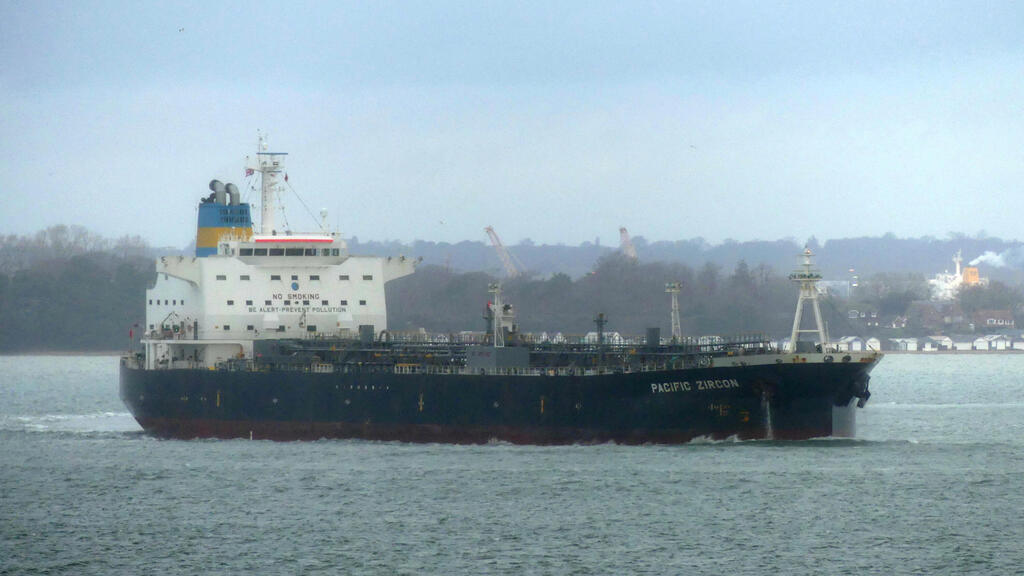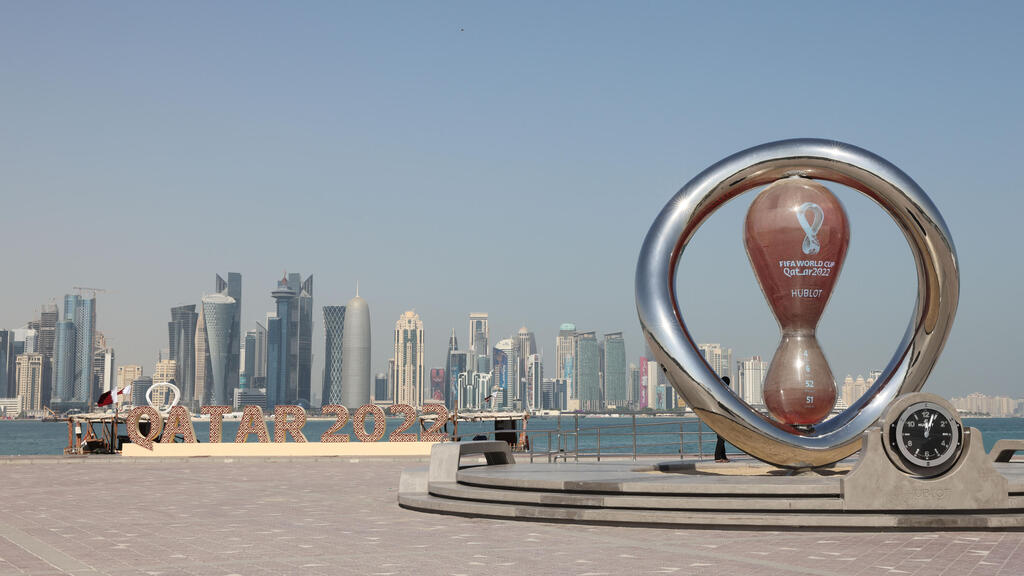Getting your Trinity Audio player ready...
An Israeli official, on Wednesday accused Iran of involvement in an armed suicide drone attack on an Israeli owned oil tanker in the Gulf.
The vessel attacked late on Tuesday, was identified as the Liberian-flagged oil tanker Pacific Zircon, operated by Singapore-based Eastern Pacific Shipping, which is a company ultimately owned by Israeli billionaire Idan Ofer.
2 View gallery


Archive photo of Pacific Zircon oil tanker, targeted in drone attack in the Gulf
(Photo: Reuters)
Israeli security sources said the strike was an effort to disrupt the soccer world championship games due to begin in Qatar next week. Although relations between Qatar and Tehran are good, the hosts of the games, decided to allow Israeli fans to enter their country without the need for visas, and on direct flights.
This might be reason enough for Iran to create further tensions in the region, so as to deter tourists from around the game, from visiting Qatar during the championship.
The vessel, believed to have been struck by an HESA Shahed 136 drone, sustained minor damage to the hull with no injuries of spillage of the gas oil cargo, the shipping company said.
Eastern Pacific Shipping, which manages the vessel, said it was investigating the incident which took place approximately 150 miles off Oman. All crew were safe and accounted for, it said.
"Preliminary reports indicate the vessel...was hit by a projectile," said the Singapore-based firm, which is controlled by Israeli billionaire Idan Ofer. "There is some minor damage to the vessel's hull but no spillage of cargo or water ingress."
Iran on its part, accused Israel of attacking the tanker, in order to turn the world's attention from the games, after Qatar had invested greatly in their success.
"The Zionists' evil during the World Cup, started earlier. Regional competitions and cabinet formation crisis in Israel, have activated Hebrew-Arab axis to attack the oil tanker in the Oman Sea in order to involve Qatar and Iran simultaneously with the help of media atmosphere," Iran's hardline-affiliated Nournews said on Twitter.
Iran has also been lashing out at its perceived enemies abroad amid months long nationwide protests now challenging its theocracy.
Torbjorn Soltvedt, an analyst at the risk intelligence company Verisk Maplecroft, said the attack "does not come as a surprise."
"The risk of attacks against shipping and energy infrastructure in the wider region is rising mainly due to the lack of progress in U.S.-Iranian nuclear diplomacy and the decision by the Washington to apply further sanctions pressure on Iran," he said. "Since 2019, Iran has consistently responded to new U.S. sanctions with covert military action in the region."
"There is not just an increasing risk of disruptive attacks against energy infrastructure in the region, but also a growing risk of a wider military confrontation with more serious consequences for world energy markets," he added.
Gulf waters have in recent years seen attacks on tankers that have come at times of heightened regional tensions with Iran. In July 2021, a suspected drone attack hit a petroleum product tanker managed by an Israeli firm off Oman's coast. Iran denied accusations it was responsible.
The U.S. Navy's Fifth Fleet said it was aware of an incident in the Gulf of Oman involving a commercial vessel. The United Kingdom Maritime Trade Operations said an investigation was taking place after reports of an incident in the Gulf of Oman.
I


